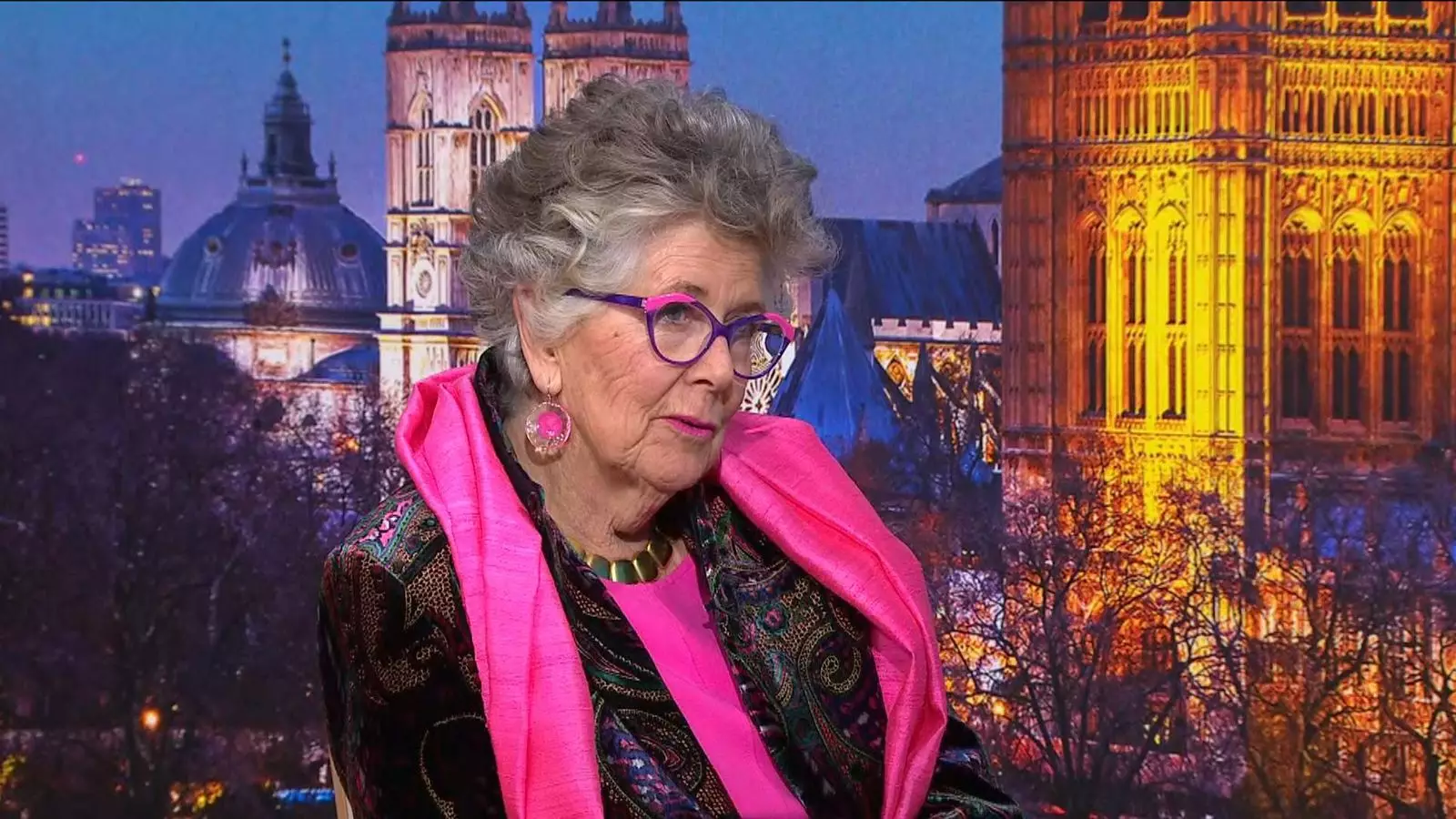The debate surrounding assisted dying remains one of the most poignant and polarizing issues in contemporary society. Dame Prue Leith, the renowned broadcaster and television personality, has recently resonated with many by articulating her perspective on this sensitive topic. Having experienced the painful process of watching her brother succumb to bone cancer, she passionately advocates for legislative reform that would allow terminally ill patients in England and Wales to choose assistance in dying. Her ardent plea to Members of Parliament reflects not only her personal trauma but also a broader discussion about the ethical implications of assisted dying.
Dame Prue revealed that her views on assisted dying were profoundly influenced by her brother David’s painful demise. The graphic details she provided about his suffering paint a vivid picture that could stir empathy in anyone who hears his story. She recalled the endless cycle of morphine administration, describing the horrific moments when the pain would take over, leading David to a state of desperate pleading for aid. Such experiences undoubtedly lend validity to her advocacy, placing human suffering at the forefront of the assisted dying discourse.
However, this issue of assisted dying does not simply hinge on personal encounters but also reflects generational and philosophical divides. Leith’s son, Danny Kruger, a Conservative MP, holds a contrasting view. He argues against the necessity of assisted dying, claiming that with the provision of superior palliative care, patients would not feel the need to opt for such measures. His stance underscores the belief that comprehensive pain management and emotional support can adequately address the concerns that drive individuals toward the desire for assisted dying.
This divergence of opinion between a mother and son illustrates how deeply personal experiences shape our understanding of complex issues. While Dame Prue’s harrowing memories fuel her advocacy, Danny’s stance seeks to provide hope through improved healthcare solutions. Such discussions can potentially drive wedges between family members, leading to difficult conversations about end-of-life choices that many may wish to avoid.
As the Terminally Ill Adults (End of Life) Bill comes under parliamentary scrutiny, Dame Prue uses her platform to rally support for legislative reform. She urges MPs to recognize the inadequacies of the current law, positing that it fails to protect individuals in their most vulnerable moments. The proposed bill aims to bring clarity and safety to the process, allowing terminally ill adults the dignity of choice.
The legislation has triggered significant political debate. Supporters, like Labour MP Kim Leadbeater, argue that the safeguards embedded in the bill are among the most robust worldwide, designed to protect individuals from coercion and ensure informed consent. Conversely, critics express concerns about a “slippery slope” toward unrestricted assisted dying, fearing that such legislation could lead to unforeseen consequences that jeopardize the sanctity of life.
Dame Prue’s reflections on her brother’s suffering and her son’s opposing viewpoint serve as a microcosm of the broader societal conflict regarding assisted dying. Families are often at the intersection of this debate, wrestling with their own beliefs and experiences. While some may argue for the dignity of choice, others cling to the philosophy of preserving life at all costs.
As legislation around assisted dying evolves, the conversation must recognize and incorporate the complexities of human experience. It is essential for lawmakers to engage with stories like Dame Prue’s without dismissing the counterarguments that stress the importance of comprehensive palliative care. Ultimately, navigating the intersection of compassion, ethics, and medical responsibility will be paramount in shaping the future of assisted dying laws.
In a world where personal stories and societal norms collide, advocating for change requires both courage and compassion. The dialogue may be difficult, but it is essential to create a legal framework that resonates with the experiences of those facing terminal illness while respecting diverse perspectives on life and death.

Leave a Reply